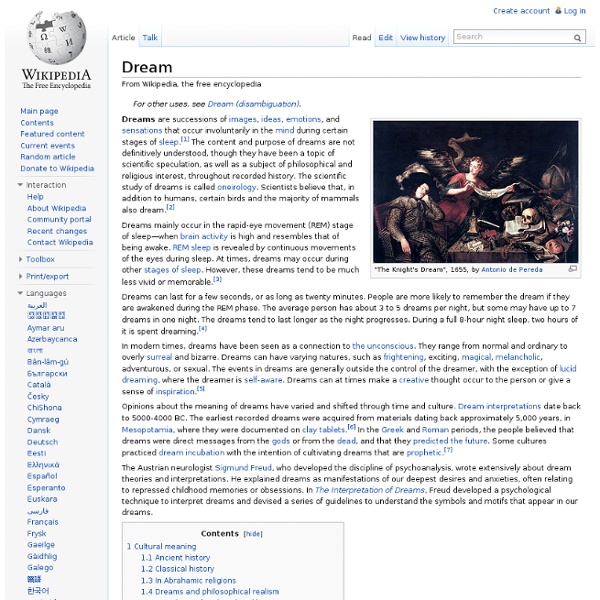Positive Psychology Center
Oedipus complex
In psychoanalytic theory, the term Oedipus complex (or, less commonly, Oedipal complex) denotes the emotions and ideas that the mind keeps in the unconscious, via dynamic repression, that concentrates upon a child's desire to sexually possess the parent of the opposite sex (e.g. males attracted to their mothers, whereas females are attracted to their fathers).[1][2] Sigmund Freud, who coined the term "Oedipus complex" believed that the Oedipus complex is a desire for the parent in both males and females; Freud deprecated the term "Electra complex", which was introduced by Carl Gustav Jung in regard to the Oedipus complex manifested in young girls. The Oedipus complex occurs in the third — phallic stage (ages 3–6) — of the five psychosexual development stages: (i) the oral, (ii) the anal, (iii) the phallic, (iv) the latent, and (v) the genital — in which the source of libidinal pleasure is in a different erogenous zone of the infant's body. Background[edit] The Oedipus complex[edit]
Sigmund Freud Quotes (Author of The Interpretation of Dreams)
“It sounds like a fairy-tale, but not only that; this story of what man by his science and practical inventions has achieved on this earth, where he first appeared as a weakly member of the animal kingdom, and on which each individual of his species must ever again appear as a helpless infant... is a direct fulfilment of all, or of most, of the dearest wishes in his fairy-tales. All these possessions he has acquired through culture. Long ago he formed an ideal conception of omnipotence and omniscience which he embodied in his gods. Whatever seemed unattainable to his desires - or forbidden to him - he attributed to these gods.
Sigmund Freud
Sigmund Freud (/frɔɪd/;[2] German pronunciation: [ˈziːkmʊnt ˈfʁɔʏ̯t]; born Sigismund Schlomo Freud; 6 May 1856 – 23 September 1939) was an Austrian neurologist, now known as the father of psychoanalysis. Freud qualified as a doctor of medicine at the University of Vienna in 1881,[3] and then carried out research into cerebral palsy, aphasia and microscopic neuroanatomy at the Vienna General Hospital.[4] Upon completing his habilitation in 1895, he was appointed a docent in neuropathology in the same year and became an affiliated professor (professor extraordinarius) in 1902.[5][6] Psychoanalysis remains influential within psychotherapy, within some areas of psychiatry, and across the humanities. Biography[edit] Early life and education[edit] Freud's birthplace, a rented room in a locksmith's house, Příbor, Czech Republic Freud (aged 16) and his beloved[12] mother, Amalia, in 1872 In 1859, the Freud family left Freiberg. Freud entered the University of Vienna at age 17. Early followers[edit]
[ KemUnited ] - The official blog of King Edward Medical University.
Australian Medical Council AMC Part 1 Guide - Experience and Tips
AMC Part 1 by Dr. Asad Khizar Malik (Rank : 77/620) Australian Medical Council Guide - Experience and Tips Salam people, let me start in the name of Allah who’s the greatest benefactor of all mankind. I am a graduate of King Edward Medical University, class of 2004-2010. So lets start with the discussion here, but PLEASE NOTE THAT IT IS ENTIRELY MY PERSONAL EXPERIENCE AND REASONING WHY I PREFERRED AUSTRALIA OVER USA FOR RESIDENCY. First thing in mind that comes with post grad training in Pakistani doctors minds is: Which way to go after graduation? Well folks, i'll keep updating the forum Inshallah, and if you have any queries, do write. Dr.
Falcon Reviews | USMLE, COMLEX
Becker's eCoach brings high-yield Step 1 topics to life by combining our updated curriculum with state-of-the-art technology through an interactive series of eBooks. Take advantage of over 200 hours of multimedia instruction from expert faculty, including video introductions, animations and graphics, summaries and audio lectures. Flipbook technology lets you highlight, underline and take notes as lectures are playing. Fastplay mode lets you view annotated audio lectures at regular, 1.5x and 2x speed.¹ Full color illustrations, embedded motion graphics and 3D animations demonstrate complex concepts.² Interactive chapter review questions test your retention and help you focus your remaining study time.³ Frequently updated content ensures that the curriculum covers the most relevant high-yield topics. Becker's eCoach includes Anatomy, Neurology, Behavioral Science, Biochemistry, Genetics, Physiology, Microbiology, Immunology, Pharmacology and Pathology.⁵
World Federation for Medical Education
United States Medical Licensing Examination | Practice Materials
United States Medical Licensing Examination Practice Materials Practice Materials Instructions Special Note About Tutorials Tutorials are optional on the day of the examination. Quick Tip After installation, if you do not see folder(s) on your desktop, please press F5 to refresh your desktop or click on your start button and select All Programs. Download Menu Please note: MacIntosh (Mac) and Linux are not supported, and you may be unable to download practice materials onto a notebook due to limited screen resolution. Step 1 Step 2 Clinical Knowledge (CK) Step 2 Clinical Skills (CS) Step 3 An animated demonstration of the Primum Computer-based Case Simulations examination is available. * See Special Note About Tutorials in sidebar If you have questions or issues, check out the Frequently Asked Questions: Practice Materials. USMLE Computer-based Testing (CBT) Practice Session Download Adobe Reader
FSMB - Federation of State Medical Boards



